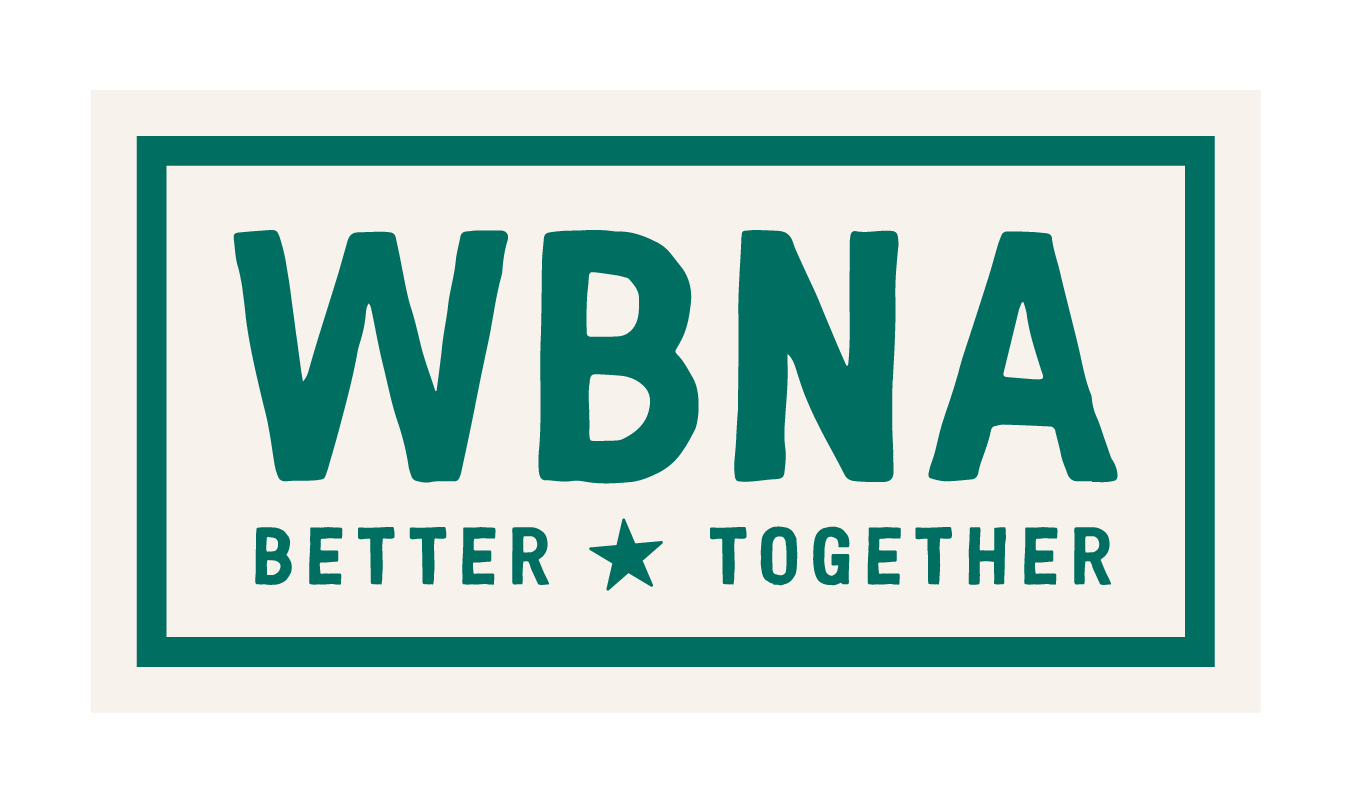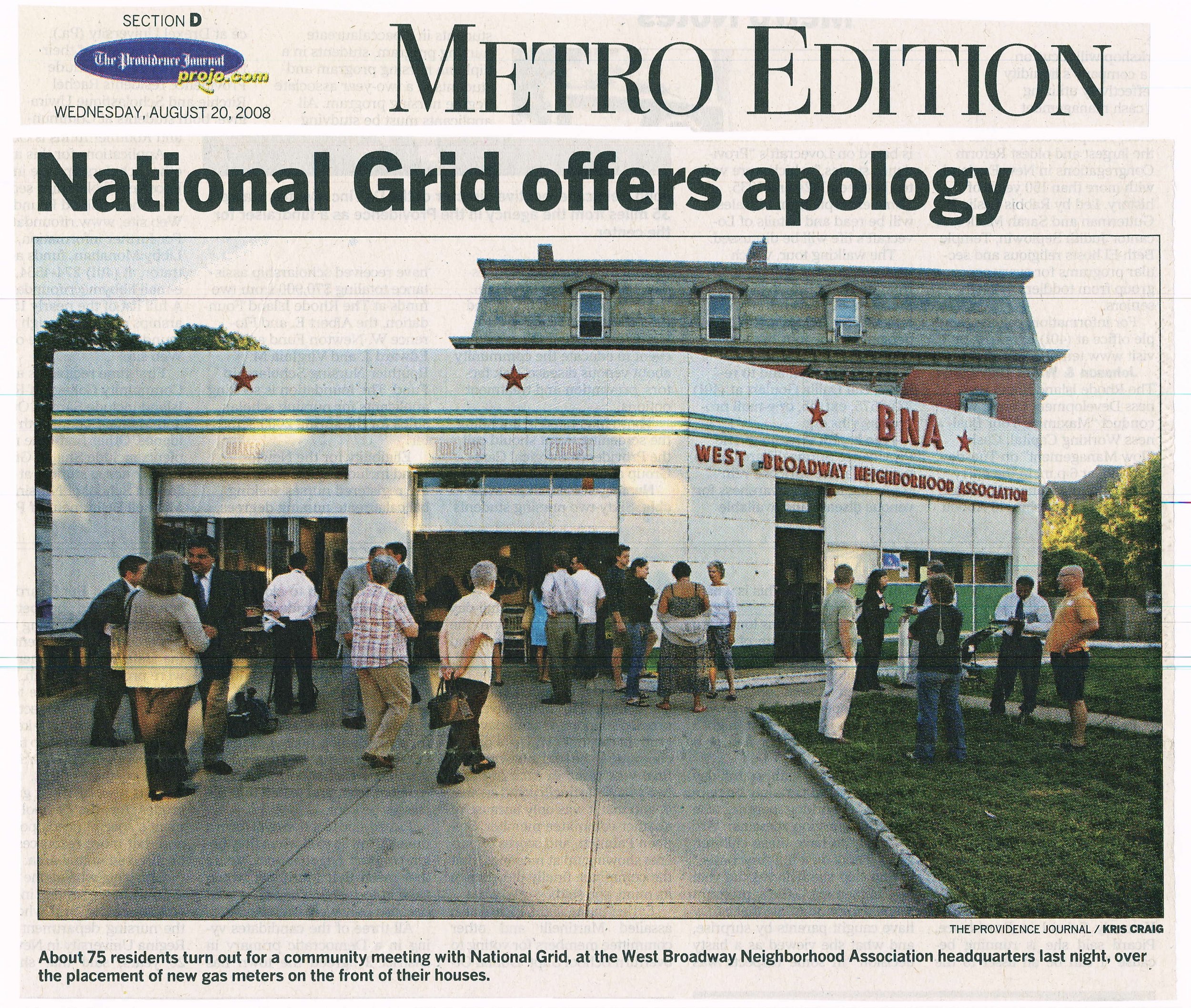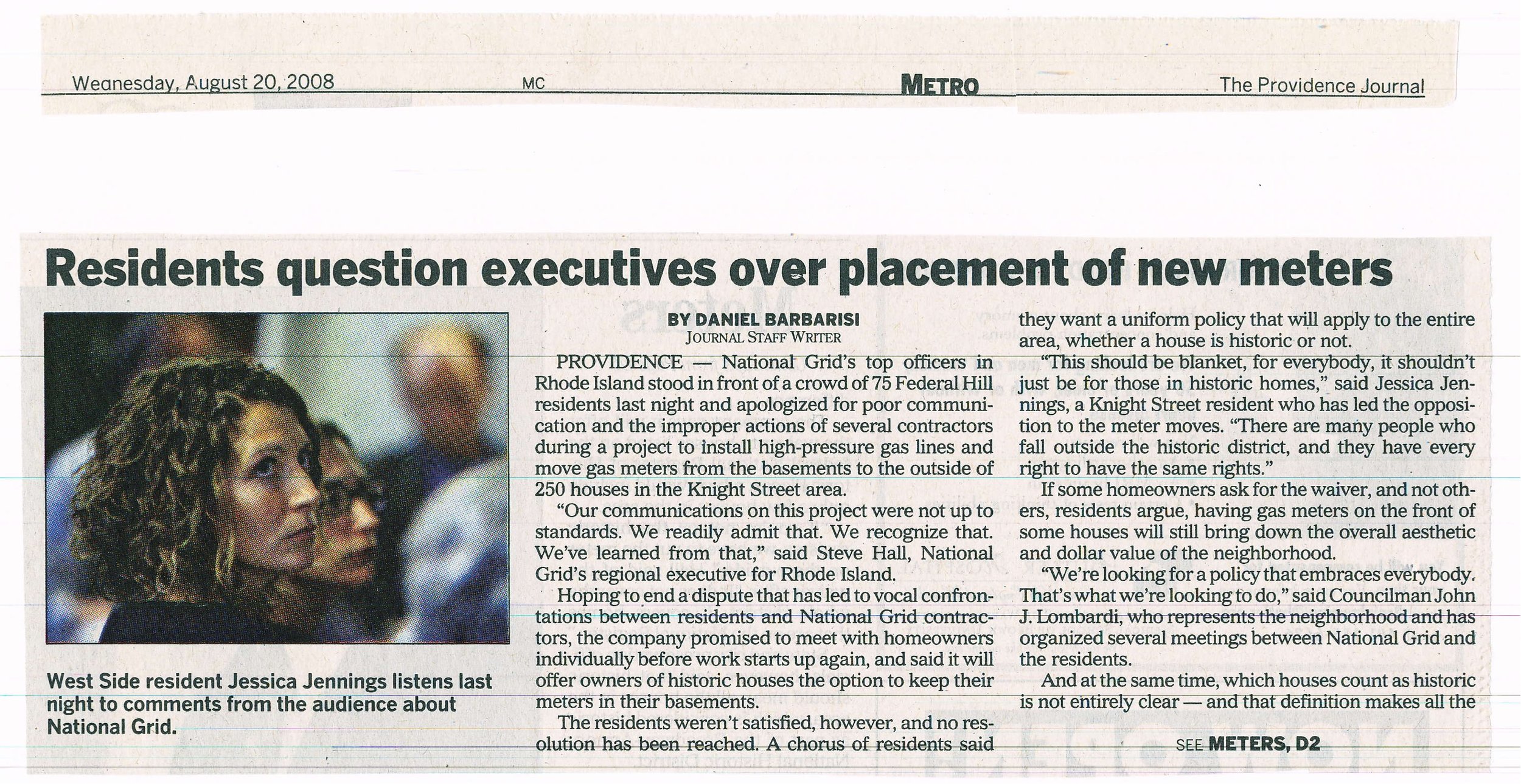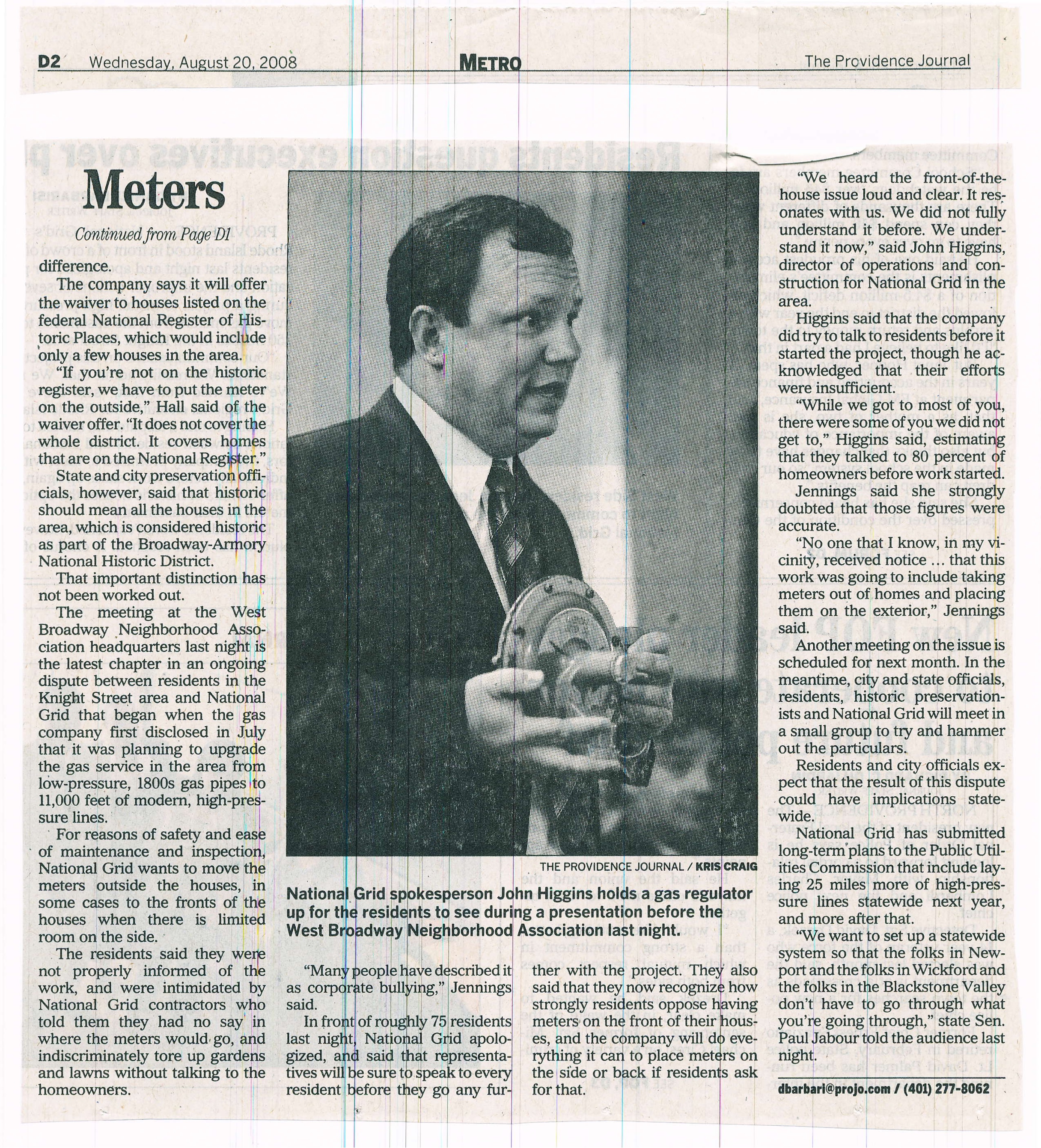Gas Meter Madness
In July of 2008, gas utility company National Grid began installing piping and equipment on the fronts of residents' homes without permission or notice. Neighbors responded in force, citing that these actions violated private property rights, caused unsafe conditions, and blighted homes & neighborhoods. By activating citizens and working closely with legislators, WBNA helped to get a law passed that gave protections to property owners throughout the state against the coercive actions of National Grid.
KNOW YOUR RIGHTS!
As of 2009 Rhode Island state law requires that National Grid or any utility company consult with homeowners as to the preferred location of gas meters or gas regulators on their properties. Unfortunately the law does not require National Grid to disclose these rights to consumers. This leaves citizens vulnerable who are not aware of this or any law that protects them and their property against the actions of utility companies.
Rhode Island State Law Chapter 39-2.1 pertaining to utility equipment installations
Since the bill was passed into law, West Broadway Neighborhood Association has fielded calls and emails from Rhode Islanders reporting that National Grid had failed to let them know their rights when the utility company did work in their area that included gas meter installations or relocations. If the gas company comes to your street or neighborhood, be sure to know the law and to share it with neighbors who may not know these protections exist.
WHAT TO DO WHEN NATIONAL GRID COMES KNOCKING
(or doesn't knock at all)
As part of its statewide gas main replacement program that will be ongoing for many years, National Grid is attempting to relocate any gas meters that are currently inside of residences to the outside of these homes and properties.
If and when the gas utility starts cutting swaths of pavement out of streets in your area in order to replace aging gas mains, please be aware that it may also start to run piping up to your home in preparation for relocating your existing meter to the front or front side of your home.
While National Grid is supposed to consult with you, the property owner, before any work is done to your property per Rhode Island state law, the company has reportedly not been consistent in how or if it discloses these rights to homeowners or, in some cases, has essentially limited a consumer's choice by not offering the homeowner full disclosure of their rights under the law.
Here's what to do if and when National Grid starts gas main replacement work on your property or street:
Tell National Grid to stop all work on your property until you understand the law and your rights under the law. If contractors refuse to stop, call your lawyer (tell them you are doing so), your city/town and state elected officials, the police and/or your neighbors
Read Rhode Island State Law Chapter 39-2.1 and know your rights. Do not allow misinformation or bullying tactics from National Grid representatives – read the law first hand before you agree to anything
Contact Marisa Albanese, National Grid's consumer relations representative, at 401-290-8025 (mobile) or 401-784-7090 (office), if you are not making progress with National Grid contractors or representatives in your area
Spread the word so neighbors can be prepared. Alert them that National Grid is doing work in your area that may include gas meter relocations, and that neighbors have rights as to where this equipment is installed
OTHER KINDS OF NOTICES
If you receive a notice from National Grid requesting to inspect your meter for gas leaks per federal requirements, schedule your appointment. Federal law requires gas leak surveys every three years for any gas utility equipment (i.e. gas meters) that is inside your home.
If you receive a notice indicating that the gas company must replace your gas meter, call to ensure that they are replacing it in the same location as it currently exists. If the answer is yes, schedule the appointment, as residential gas meters are required to be replaced every fifteen years (every ten years for commercial meters).
background & History
In 2009, when National Grid began gas main replacement work in the Knight Street area between Westminster Street and Broadway on the west side of Providence, neighbors came home to their sidewalks destroyed, landscaping dug up and, in many cases, a gas pipe poking out of the ground inches from their foundation and front steps – all without warning or notice. These experiences were not isolated to west siders, as we learned that east side residents had been enduring the same treatment as were homeowners in other parts of the state such as Newport.
What neighbors saw was a utility company abusing its power and violating private property rights, not to mention the imminent blight that would be imposed on their homes by forcible gas meter installations on the fronts of their properties.
WBNA worked with neighbors, elected officials, businesses, historic preservation advocates, and other organizations to protect the private property rights of citizens not only in our west side neighborhood but throughout the state of Rhode Island. Senator Paul Jabour, Representative Steven Costantino and Councilman John Lombardi (now Representative Lombardi) were essential to our effective advocacy on this issue.
Working together, we succeeded in getting landmark consumer protection legislation passed that requires utility companies to consult with homeowners before relocating or installing any gas utility equipment in or on a property, that protects all homeowners across the state, and that additionally offers certain protections for historic homes and districts.
Goals
Educate Rhode Island consumers about their rights under law
Combat myths, misinformation, and bullying tactics that have been reportedly used by National Grid employees, sub-contractors, contractors and other representatives to homeowners when the utility company desires to do work on residential properties
Provide a clearinghouse of facts, past history, resources and legal assets so that consumers, property owners, and advocates can become educated and empowered
Make neighbors and consumers aware of how a determined group of citizens can work together with elected officials to secure protections under the law
Create a site where citizens countrywide can find resources to help them fight coercive actions of utility companies [resource guide portion is in progress]
RESOURCES
This section is in progress, but will include links to past media and articles, documents used during testimony at the Rhode Island State House, informational packets, precedents in other parts of the country, and other resources that could be helpful to citizens in other states who may be facing similar battles in terms of the need for consumer protections in the face of corporate utility companies.



